When Selfish Is Okay: Selfishness From A Perspective Of Abundance With Gary Pinkerton
Podcast: Play in new window | Download
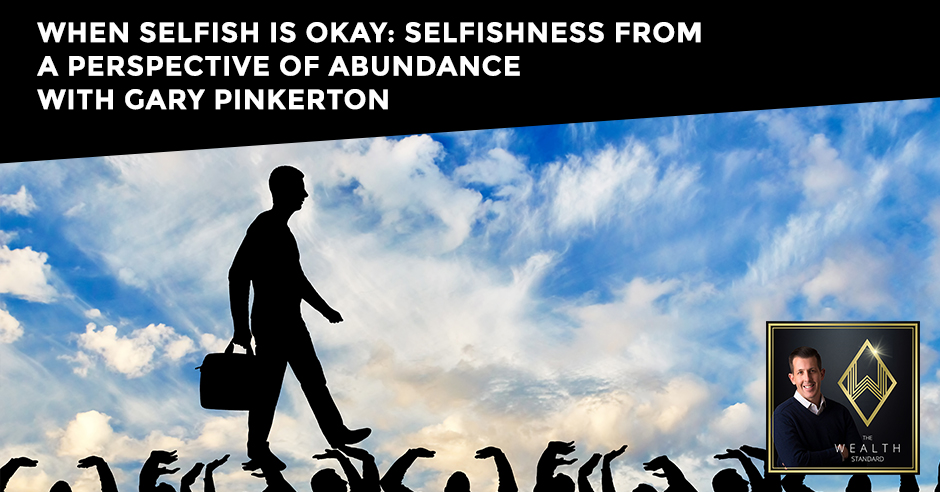
Selfishness isn’t always bad. When your selfishness comes from a perspective of abundance, it becomes the kind that gives value to people instead of taking something away from them. That is just one of the amazing facets of the abundance mindset that we don’t get to hear about every day. You can hear these facets resound mightily now in this conversation between Patrick Donohoe and his amazing guest, fellow wealth strategist, Gary Pinkerton. Listen in as they take a deep dive into a far-ranging conversation on abundance, empathy, growth and success.
—
Watch the episode here:
Listen to the podcast here:
When Selfish Is Okay: Selfishness From A Perspective Of Abundance With Gary Pinkerton
On my show, I try to focus being an optimist and Gary‘s goal to be in the title of the show. I want people to focus on creating their own success and seeking inward for their security, self-worth and guidance. Continue to do self-improvement so that you can continue to move to a higher level. I want to surround myself with people and teach people how to set up all aspects of their lives so they’re not beholden to somebody else. They’re not worried somebody else is going to take something away from them. They can focus on what their goals are and get the happiness from inside, not from outside.
You’re onto something that a lot of people try to figure out by going to the outside, whether it’s a business success, investment success or more money. I don’t know about you, but in my experience with myself and with people, you get to those moments that you thought were going to be existential. It’s like, “That’s it.” For me, I’m curious about myself. There’s a huge part of me that’s like other people. A little bit of me is crazy, but I’m always curious about why I do what I do, why I think what I think, why am I compelled to do this, compelled to do that?
I’m curious about the experience of others and what they’re trying to get as well because I’ve made the connection and I’m not sure when it was. I have to continue to make the connection. The best for me comes from providing the best to others. For instance, my kids, talk about altruism. As you define raising kids, but you put a lot of money into it. There are lots of resources given. It’s like a smile, a small achievement. It’s worth everything. I look at how easy it is for me to experience success by having a conversation with my kids.
It’s simpler than people realize to get what they want. It’s this never-ending pursuit. It doesn’t end. It’s not like you accomplish or achieve a milestone and suddenly that’s it. It’s this constant improvement and growth. I don’t think it ever ends. I don’t think the material world, the outside world will ever conform to exactly what you want if that’s the condition that you require in order for you to be happy or fulfilled.
You’ve said a few pretty interesting things there. I agree that the outside world is never going to conform to the perfect result of what you’re looking for. That’s a pursuit that is guaranteed to bring sadness. If you’re looking for validation for your self-worth on the outside. I do agree and we’ve talked about this before. You have an amazing perspective on this. I’ve struggled with this idea of individualism and being uniquely selfish. You make some good points that the actions we take in doing charity for others, helping other people and helping our children succeed is a selfless act. Even though we’ve been led to believe that being selfish is bad. If you act in your own best interest, you’re showing your absolute best to other people. You’re adding the most value to other people.
There’s a way in which you can frame selfishness as a bad thing and a way you can frame it as a good thing. There’s a cool book called Power vs. Force that I’ve read a couple of times by David R. Hawkins. He passed away a number of years ago, but something that resonated with me is that there’s this force energy that’s out there. It comes down to taking more than you give. The selfishness that comes from that mentality where it’s a net zero, meaning you take more than you ever contribute. It doesn’t lead to anywhere great. Most people can judge as far as selfishness is concerned in that arena. It crosses a line at some point.
The line starts when you produce more than you consume. You contribute more than you take. You’re always going to take. If you’re contributing, serving, giving, influencing, improving others, it’s way more gratifying than when it’s net zero or net negative. It’s way more gratifying. That gratification is you experiencing it. There’s that line that some people cross, but I go to Maslow’s hierarchy of needs where people are driven for their own survival, their own experience. It starts with physiological needs. It goes to safety needs. It goes to relationship needs, which other needs. It goes to self-esteem and ego needs.
If you're looking for validation of your self-worth from the outside, it’s guaranteed to bring you sadness. Click To TweetPeople recognizing their worth and value in the world, which sometimes they need to be a little bit egotistical or selfish to discover, “I’m special. I’m unique. I can contribute something.” It crosses into that self-actualization arena where it’s not about you. It’s not about the self or the ego. It’s about what’s right and what’s good. That’s where a lot of the fulfillment of life comes from when you get there. At the same time, it’s like you have to go through those other stages first. You can’t just skip right to self-actualization and enlightened self-interest.
You have to grow up through them. There’s no shortcut. As you were talking about that, I thought back to the awesome book about growth mindset. It was from Carol Dweck. It’s an amazing book. I related it to this thinking that selfishness from a scarcity mindset, if your mindset is wired to be scarce, then your version of selfish is, “If he gets that, I don’t get it. If that person gets to speak, I don’t get to speak.” If you were using selfishness from what I now understand Ayn Rand and others in her culture, believed was that it’s from a perspective of abundance. If you give more, you get more. It’s okay to be selfish in that perspective. An example is I want to travel the world. If you help enough people on all corners of the world, all around the globe, you can do that. Your selfish motivation is coming from a perspective of abundance.
Ayn Rand is way smarter than I ever was. She had some intellectual people that surrounded her. By no means am I going to ever try to put words in her mouth or try to describe what she means. What it means to me, and I think where she was coming from, is this place where altruism is where there are force and coercion. Where people are forced to give up or coerced where it’s negative. There’s a force. There’s not a voluntary act. When there’s a voluntary act to produce, to serve and to give, that’s when you have a net positive, not when you’re forced to do it. That’s what she meant. That’s how I’ve come to interpret it in a simpleton’s way.
We’re talking about this after the general election and probably several weeks before this thing is called. As a person who loves the republic, I’m quite inspired by the fact that our judicial system is going to allow this to play out whichever way it goes. We’re in trouble if we don’t allow it to play out and gain the confidence, but that’s on the US republic side of things. There’s so much passion, so much hate. People get in that situation when they are in a position of fear. They’re afraid that the outside entity that has been providing for them, whether that’s food, shelter, clothing or its sense of worth. Going back to what we were talking about at the beginning, I’ve experienced that people who are confident, they have the self-confidence. They can provide for themselves. If they want something different, they go get it or they figure out how to get it. That’s different than being in a complete state of fear when you believe that you will be provided for by somebody else, and now that’s in question.
It’s been an interesting observation of how this election and 2020 in general is the year where there are a lot of stirred up emotions and energy that is chaotic in a sense. That what amplifies it is social media. First, there are two dominant fears that people have. Number one, they don’t want to change. Number two, they don’t want to be wrong. That’s seen everywhere. You try to speak rationally to somebody and even one hint of them having to change or them being wrong and you being right, it ignites a bonfire.
I look at our ability to have rational conversations, and it’s seldom when you have two differing points of view. They’re able to come together, have a rational argument, a civil argument and go their separate ways without begrudging one another. I look at that type of person, that self-actualized person where they’re not defined by somebody else or they’re not defined by the opposite of what somebody else believes. They’re defined based on their own internal sense of worth, fulfillment and identification. That doesn’t come easily. The environment that we’re in right now is very ego and selfish driven. It’s not like Maslow’s hierarchy of needs again. It’s in the self-esteem where people want to be validated. People want to feel good.
They want to be a part of a group. That’s what motivates them. It’s hard to get them to figure out a different way. I’m not going to go down that path. At the same time, we all get caught up in it. Families and close relationships are impacted by it. By no means am I saying that I’m enlightened or I’m not affected by what people say or do. I try to be in there as much as possible, but the moments are few and far in between. I am impacted. At the same time, I try to catch myself and be able to rationally think through it, and also have a discussion rather than have banter back and forth.

Abundance Mindset: If you act in your own best interest, you’re showing your absolute best to other people and you’re adding the most value to other them.
I’ll give you an example of my brother-in-law. Cynthia, my wife, is from Mexico originally. I was talking to her brother. He was very upset that he felt judged and racially biased. I let him talk. I let that emotion come out. I asked permission, “Would you mind if I give a different perspective? What if that guy that did this or said this, what if his wife died that morning? What if his child died in a car accident? What if he has been fired from his job? Would you have a different opinion about what he said or what he did to you?” He’s like, “Yes.”
I also asked, “What is racism as you boil it down?” We both agreed that it was a judgment. I said, “Isn’t judging him that he’s a racist, the same thing as him judging you as being Mexican.” It was a good conversation, but what it took was you can’t attack and banter back and forth. You have to step back and try to find common ground so that emotions are tempered. That’s when you can have a more enlightening conversation, even if emotion does exist at a high level to begin with. I believe that’s possible for human beings. At the same time, one person has to understand the tenets of a meaningful conversation and direct the debate, direct the conversation in that arena. It’s a challenge but if we had more of that, it would be being a different state, but yet most people are very compelled. They’re affected. They’re triggered based on a lot of political opinions, one way or the other. It’s sad sometimes.
There’s a quote out there that I have no doubt I will get wrong or not even get close, “If you want to understand another person’s perspective, first, walk a mile in their moccasins.” I’m sure I’ve thrown 2 or 3 of them together there. You and I both have good friends and I’ve spent a lot of time around Robert Kiyosaki. I don’t think he invented this, but he talks about two sides of a coin and then the edge. He’s talking about it from a perspective of a sophisticated investor where you can see both perspectives and make your own decision. I found myself blown away. I found it interesting and also somewhat stressful that people that are very dear friends of mine have gotten caught up in the emotion. I probably have to and I can’t fathom what I’m missing. It’s been quite interesting to go and read news articles things that I don’t normally read because I’m trying to figure out. I deeply care for this person. I’m trying to walk that out. It has been quite enlightening and not easy to do.
There’s a twist to that saying, which is interesting as well, “If you want to understand a person’s view of life, try to walk a mile in their shoes,” or something. It was Roy Rogers or someone said, “If you try to put yourself in someone else’s shoes, you’ll find yourself a mile away in somebody else’s shoes.” At the same time, we want to do that. It’s not to understand where they’re coming. It’s more to have empathy. There are many different events that mold a person’s psyche, how they drive meaning from life, their opinions of this, that or the other. We all have that unique aspect of our lives. Most of those experiences come when we’re younger and get reinforced when we’re adults. It’s hard to see how a person views things. Empathy and valuing somebody else’s life, their emotions and their opinion is a good place to start. At the same time, I go back to those primary fears. When you’re afraid of something and you have a lot more experience in fear, as you have been in certain positions in your life that are life and death situations.
I haven’t been in those, but you could be conditioned to approach fear a certain way. Fear is something that you anticipate and know how to show up in, or fear can be a trigger and completely out of the blue, your natural response is fight or flight. In 2020, we had an earthquake here. I was right sitting in that chair and the whole freaking building was shaking. I was by myself. That fight or flight mentality, it’s totally real. There are degrees of it. It’s one of those things where if you’re not conditioned, if I live in California my entire life and felt earthquakes every three days, it would have been a different response because I would have been conditioned, but it wasn’t.
It was the first time I’ve ever experienced. I didn’t know how to react. It was my body that took over. My point in that is that as people look at whether it’s a political opinion, or a current event, or something that happens that disagrees with their blueprint of life or what they define as right or wrong, good or bad. They don’t want to be wrong. It’s a natural thing. We don’t want to be wrong. We don’t want to be proven wrong. We don’t want to look stupid. We don’t want to look inferior.
When somebody tries to prove us wrong or alludes that we’re wrong, it’s like that same fight or flight mentality. That’s where I look at its conditioning. It’s recognizing being aware of it first and recognizing that your opinion is your opinion, and others have their opinions. Others shouldn’t define what you think about yourself and what you think about life. It shouldn’t impact you the way that it typically does if there’s no conditioning.
It’s okay to be selfish if it’s coming from a perspective of abundance. Click To TweetI was thinking also when you were talking about that where I thought you might go is fear. To boil down what I think of fear. It is when you’re in this position. It’s instinctual. It’s been vital for human survival or the survival of all animals. If you distill it down, it is you not believing that you can control the outcome, that you’re out of control which is causing the fear. As we work on ourselves, as we build confidence, hence, let’s take this financial. I have no idea if this is true or not, but I saw this thing that said for CNN, that those who back Trump, you need to think about what impact that has on your ability to get employment from a future employer who knew that you back Trump. It was bizarre. It may have been totally made up.
My point in using this example is that a lot of people freaked out on the comments below that because there was fear there. They didn’t have control. Thinking about it from a financial side, if we can help others and we can help ourselves, first put our own house in order and set up your life so that you do have control. You are not susceptible to others. What I’ve learned in meeting with hundreds of clients since March 2020, and the other members of our team have learned the same thing, that those that are calm, those that understand and those that are asking questions like, “I wonder if good opportunities in investing will be a result of this.” As opposed to those that are like, “None of my tenants are paying. What if I don’t have my job?” Those are real fears. The difference has been that the people have been able to set up their own lives in a way in which they have confidence, a lot of money are sitting on the sideline, their own business and things like that. Something in designing a business in a resilient industry. Things like that help them have confidence and stay away from fear.
There’s a lot that you can do to reinforce the different areas of life that you have anxiety about. At the same time, I wouldn’t call those absolute measurements where you set it up and it’s going to work and help. In the end, Man’s Search for Meaning by Viktor Frankl is a profound book because it shows that in the face of death, a man can either give up and concede but it’s not forced. He has to be the one that makes that decision or you can have someone say, “That’s the last of my freedom.” It is to choose how I feel regardless of what happens. That famous quote, “That response is growth and freedom.”
I love that because of the circumstances that he was in. This was some like rich kid, trust fund baby. Given the circumstances of this person’s life, being able to say something as profound as that helps to understand our experience of life where we have this reinforcement of cash. We have cashflow. We have investments. We have a financial education. We make good decisions in business. We would hope and we do hope, that’s where people get hooked on hopium is that if you have all of those things, suddenly you’re going to have a fulfilling life. That’s not true. How I’ve learned to look for myself because I want what most other people want. I want a happy life.
I want meaningful relationships. I want to have amazing experiences. We live in a world and a society where we live in abundance and in amazing times. When I look around me, I don’t have to ride a horse home in this snowstorm that’s outside. I don’t have to have buffalo skins all over me because it’s winter. I don’t have to go home and make sure that I chopped enough firewood two months ago to last the winter. I’m able to go home with an amazing set of comforts that wasn’t even experienced by kings a hundred years ago. When I’d take that view of life, it puts me in this state of gratitude where I go home. I have a great conversation with my wife. I get to see my kids happy. What else?
If we find the joy and the fulfillment in those types of moments, and don’t necessarily require as contingencies of life aligning a certain way in order for us to be, feel and experience a certain way. What it does is it gets the things that we want. Those goals, those achievements, those ambitions, it gets them quicker. You’re not attached to this specific thing that’s going to make you feel a certain way. You’re able to experience that now. There’s so much of that around.
I’ll use Eddie, my brother-in-law again. I’m like, “You have two kids and you’re an amazing dad. You can see it. How many people out there don’t have kids, but they want them. They’ll have a wife and they want them, or a husband. It’s an amazing life that you get to live.” You have challenges here or whatever, but once you’re able to focus on what’s there as opposed to what’s not there, your life starts to change. It took me a while to understand that. I would be lying to say that I’m 100% that way. I’m able to catch myself when I have those moments where I’m triggered. I’m able to snap myself back into a perspective that I have an amazingly blessed life. I know Gary Pinkerton. I say that not as ingest. I say that I feel honored to know you and have a friendship with you.

Abundance Mindset: If you want to understand another person’s perspective, you have to first walk a mile in their shoes.
Thank you. Me too. I said this a couple of episodes ago, but it’s amazing to me that life could be this simple where it comes down to positive. I’ve had this goal to be in a mindset of abundance. I heard people talk about this for years. I’ve seen people who are Pollyanna-ish about life. That’s not what this is about, but then I read Dr. Joe Dispenza‘s book. He made this comment that I was like, “It can’t be that simple.” It was also in the master key system from 100 years ago. One is you can only truly hold one thought in your mind at once.
I tied that to Dr. Frankl’s book because when I read his, I’ve read it 3 or 4 times. I remember the first couple of times, I’m like, “That’s easier said than done especially in the middle of a concentration camp. How do you choose?” I’m going to choose differently. That’s hard. How do you get to that? There’s some positive brainwashing going on. You have to keep thinking. First of all, you have to recognize that for most of us, it’s true. You can only think one thing. If you’re about to flip somebody off and say something nasty to them, but if you force yourself to think about something positive about what they’re wearing or whatever, it’s hard to do that. If you can understand the limitations of the machine we’re operating here, it’s very helpful to train yourself.
You’ve practiced this a lot. It becomes a habit and that habit is recognizing the trigger, recognizing that it’s coming and shifting out of it. Recognizing that it’s possible. It’s a very simple thing to do. It takes consistency and then building enough habits so you recognize when it’s coming on. Those are big keys and it has been hugely successful for me. I learned most of this from you and from my good friend, Aaron Chapman, and many others. It has made a big difference.
You hit the nail in the head. Part of that Frankl quote, the beginning part is between stimulus and response. There’s very little we can do to control stimulus. Stuff’s going to happen. It’s in the space between stimulus and response. It’s trying to shorten that where your response is conditioned. The type of person that operates in that zone, you can tell. There are many people that I’ve been fortunate to not learn from directly but indirectly. Whether it’s through their books, video or going to seminars where they demonstrate that.
It gives you confidence that you are able to do that as well. The type of person that shows up that way, there’s a feeling about them. There’s a sense about them that leads to lots of success. From a business perspective, from an investment and money-making perspective, there’s a common factor that is evident, apparent in all, which is relationships. The relationship between one person to many, one person to another person. It’s the ability to show up in a certain way. That leads to lots of opportunities. If you show up in a certain way, the net zero or net negative way, you’re not going to have many opportunities. It’s not just in investment and business, but it’s in relationships. It’s the way you are as a parent. It’s the way you are as a neighbor.
I try to pay attention to that. How am I showing up? Where is my mindset? Where is my mentality? The way in which I show up I’ve connected to the opportunities I’ll have throughout life as well as the growth of my experience, fulfillment and happiness. As you do it, you start to show up as a different person. You show up with a different part of your personality. That’s where there’s so much magic in that if you can strategically figure that out. It leads to so much in life.
I’m fascinated by that moment and Victor Frankl’s quote about the time between stimulus and response. I was smiling when you were talking about that because my youngest, he used to have this phrase. I don’t hear it too much anymore, but it was awesome. He would do something stupid or make a mess or something. He would say, “That happened.” He’s not mad. I used to think it was so funny. I’ve been pushing my kids, my boys, and I know this is crazy. It’s a little out there, but I always say, “Try to take responsibility for everything that happens in your life. Own everything that happens in your life.”
Focus on yourself and look at life from a new perspective. That is what’s going to lead you to happiness. Click To TweetMy eldest was like, “Dad, how is that one my fault?” I have found that we all need this little trick to get between stimulus and response without responding. Somehow you need to convince yourself or train yourself to pause. Not just do the reaction, but rather do a measured response. I’ve trained myself to say, “How was that one of my faults?” You figure it out. I asked myself that question and not be sarcastic but like, “How did I cause that?” It causes me to pause. I don’t cut people off or flip people off. I will fully admit that’s what I used to do. It makes a difference. It’s a good point.
There are many different scenarios where that example is evident. You hit on something that I’ve learned in 2020 specifically because everybody has spent a great deal of time with their family. I’ve come to have so much respect and admiration for my kids. Their life is completely shut down. There’s an unintended consequence of everything that’s going on. You can look at the lives of kids being impacted the most if you think about it. I won’t get into details there, but what I’ve noticed in my kids, they have incredible resiliency and an incredible way in which they look at life. I don’t know if I did it. I think they were way more mature than I was at their age.
It’s allowed me to understand one of those paradoxes of life where children are the ones that in a lot of ways are much smarter than adults, from an emotional level, if you think about it. There are lots to learn from dogs as well. It’s one of those things where I’m grateful that we get to talk about this because I get to learn based on me speaking and voicing things that are inside my head and inside me. Also, to do with others that have a similar open mind to how things are, and discovering even better ways to enjoy life despite the circumstances.
You have a stimulus, money printing, the Federal Reserve, you have the President and these hints of socialism that’s happening in politics. You have this person saying this and that person saying that, and you have this evil conspiracy. It’s one of those things where a lot of that stuff is out there. There’s probably truth to a lot of things. At the same time, a key to life is to pay attention to what you focus on and then correlate that to the amount of control that you have and influence that you have. Once you realize that there’s not much you can do, you’re able to skip over that.
Start to focus on yourself and ways in which you can look at life from a new perspective because that’s what’s going to lead to happiness. The other way of doing it is net negative or net zero, where there’s nothing to gain. If you look at the world around us and how we live in an incredibly abundant times, there is so much to be grateful for. There’s so much going on that doesn’t make the news headlines that if we look for it, we’ll be inspired. Peter Diamandis is someone that I follow all the time because he was the first person that snapped me out of all the crap that was going on in 2008, 2009, 2010, where it felt like the world was falling apart.
His book, Abundance, opened my eyes to how much innovation, how much growth, how many people were being saved, the lifespan of people in other parts of the world were being extended. There are so much positive things going on that don’t make the headlines that if we were to step back and maybe put a little bit more effort into researching, we could see the world is transforming in a positive way. If we focused our attention there, it allows for a much better momentary experience. Overall, it’ll be conditioned so that we’re not as susceptible to the anger, the hate, the divisiveness that is super easy to find if you turn on the TV.
Peter’s book would be a great one to have at the bedside and read 5 or 10 pages before you go to bed because it is an inspiring book. Ending on that, looking for the positive, keeping yourself in an abundant mindset has been a theme of this episode. One of the very easy places to do that is to think about the positive aspects of what’s different about our lives now. We talked about how our children’s lives now. That’s your worst nightmare, especially for teenagers to be stuck with your parents and not around your friends and unable to play sports. Think about the lot they got in life. Think about the lot we got in life.

Abundance Mindset: We have to put our own house in order and set up our life first to help other people.
I have been trying for years ever since. While I was in the military, it was not reasonable. Ever since then, I’ve always wanted to have family dinners at least on the weekends. I succeeded with a Saturday night, but I have to take my family out to eat somewhere to pull that off. COVID-19, starting in March of 2020, we had dinner together during the weeknights, almost every night of the week. The conversations because our kids are sitting around us with not a lot to do, are very amazing intellectual conversations. Throw an election year in the middle of it and some good conversations about the Constitution and the Republic, what it means, why this is important, why that person would say that. I take those opportunities. It’s amazing. I’d written off that I was going to have weekend nights with my kids or any evenings. I had said, “I wasn’t that kind of parent,” but I love it. However, you can reflect on your time and see the advantages that are there, it’ll keep you in the right mindset. That’s how you move forward.
A good ending point is life is happening for you. It’s giving you the opportunity that despite the circumstances, you can experience an amazing life now. It doesn’t mean that there shouldn’t be proper discipline, systems or a pursuit of a career. There are some foundational elements to life that makes the experience easier. You hit on some things where you can create a foundation from a structured tools standpoint. At the same time, that doesn’t guarantee a meaningful life. It could help to amplify or accelerate, you experiencing life at a different level. It’s cart before the horse. I’m not saying that a cart is always behind or it could be sometimes in front. I don’t know. In the end, just because you have a lot of money, protection, safety and certainty, it does not guarantee you a meaningful life. If that’s where 100% of your focus is, chances are you’re going to lose the things that are meaningful to you in the process of accumulating that side of it.
I had over half a dozen clients get divorced within a couple of months of one another. This was several years ago. It was humbling because of the varied emotional conversations. I did everything for them. Everything I was doing, the seminars I went to, the videos, the education I got, putting money away and investing. It was all for them. Along the way, that wasn’t necessarily the nonverbal message that was being sent. You got to have a good mix of life all along the way. The typical retirement planning, financial planning is all geared toward this. Someday in the future, all the sacrifices, all the time, all the missed dinners, it’ll all be worth it. That’s not true in my experience. You can challenge me on that. I’m totally grateful for you to do that at the same time. The experiences that we have with ourselves, as well as clients affords us some lessons, some principles. One of those is the mix of life starting now, not sacrificing the different elements of life so that you can enjoy all of them one day.
I used to think that for sure, putting stuff off. You see evidence of that not going well. The only people driving the expensive cars are the 60-year-olds who can’t enjoy them or 70-year-olds. I now believe that you can have everything in life you wanted. To steal from Zig Ziglar, you help other people get what they want, and you make people around you happy, and your happiness comes from that. I would personally start with your spouse and your kids. I’ve made it a focus at one point for myself to all my only purpose in life was that my wife would be happy, whatever that meant. Do you know what happens? I was super happy. The silly little bumper sticker that’s on the fridge that if mom’s not happy, no one’s happy. That stuff is true, but it’s true for anybody in a relationship. If you derive your happiness from seeing happiness coming from others, you’re on a successful path. Patrick, it has been amazing.
I love having these conversations especially with you. Thank you for the opportunity. I appreciate it.
I have many friends who have reached out. It’s like who’s who of people that I truly care for and got to spend an hour with one of them. Thank you.
It was my pleasure. Thank you, Gary.
We’ll see you next episode.
Important Links:
About Gary Pinkerton
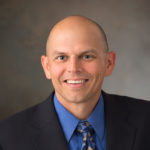 Gary earned his Bachelor of Science degree in Mechanical Engineering from the U.S. Naval Academy in 1991 and a Master of Science in Nuclear Engineering from the University of Illinois in 1993. He spent 26 years serving as a Submarine Officer in the U.S. Navy, including commanding the nuclear attack submarine USS TUCSON from 2009-2011 and retiring as a Captain. His career was rewarding both personally and professionally with unforgettable opportunities to work with highly trained teams employing state of the art technology in support of our Nation and its ideals. It was the type of work that left no doubt it directly contributed to the balance of power across the world and the sustainment of personal freedoms across the globe. But as with any intense calling or career, two decades in the Navy and many deployments had stressed things at home and delayed other important pursuits. In 2011 Gary began a process of replacing his traditional earned income with passive cash flow by purchasing income producing real estate properties.
Gary earned his Bachelor of Science degree in Mechanical Engineering from the U.S. Naval Academy in 1991 and a Master of Science in Nuclear Engineering from the University of Illinois in 1993. He spent 26 years serving as a Submarine Officer in the U.S. Navy, including commanding the nuclear attack submarine USS TUCSON from 2009-2011 and retiring as a Captain. His career was rewarding both personally and professionally with unforgettable opportunities to work with highly trained teams employing state of the art technology in support of our Nation and its ideals. It was the type of work that left no doubt it directly contributed to the balance of power across the world and the sustainment of personal freedoms across the globe. But as with any intense calling or career, two decades in the Navy and many deployments had stressed things at home and delayed other important pursuits. In 2011 Gary began a process of replacing his traditional earned income with passive cash flow by purchasing income producing real estate properties.
Today, Gary is a wealth strategist, professional speaker and real estate investor. He first learned about the Perpetual Wealth Strategy and Wealth Maximization Accounts (WMAs), then more commonly known as the Infinite Banking Concept (IBC), while purchasing his first income property in 2011. Utilizing Paradigm Life’s education process, Gary established a WMA to fund this first investment and has repeated the process as he works to continue building passive income sources. This journey had a huge impact on Gary’s understanding of what personal financial security and success are and how best to achieve them – he recognized how far he and most Americans had moved away from sound financial principles that emphasize building a strong foundation focusing on safety and security, and pursuing dependable, consistent growth of their assets. Wall Street convinced families to hand over their hard earned dollars and all control, to hold on through frequent, turbulent market swings and exorbitant fees – it hasn’t worked for most Americans, and it won’t work. Gary joined Patrick Donohoe at Paradigm Life to help educate others and reverse this trend.
Originally from a dairy farm in rural Southern Illinois, Gary now lives with his wife, Sue, and their two sons on the central New Jersey coast.
Love the show? Subscribe, rate, review, and share!

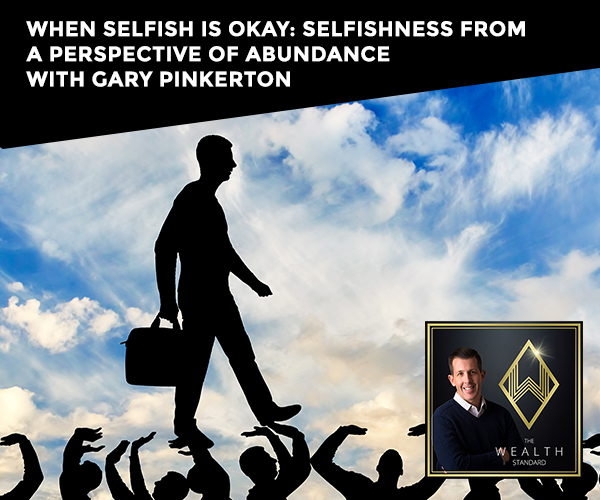
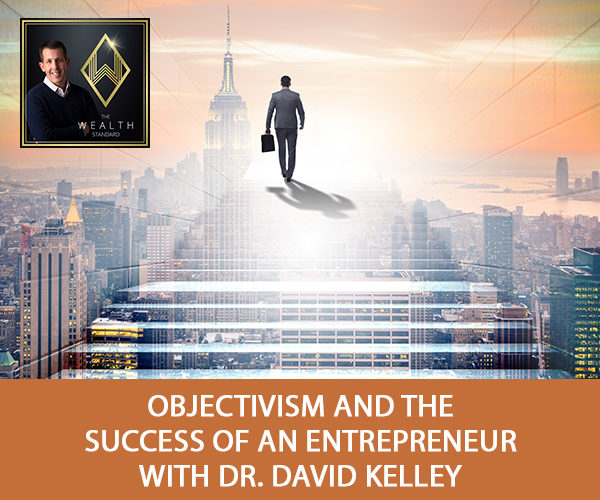
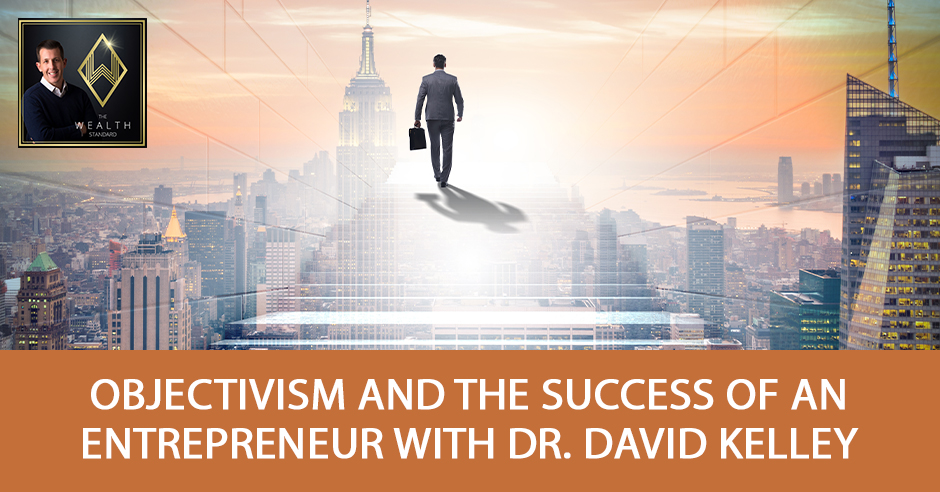
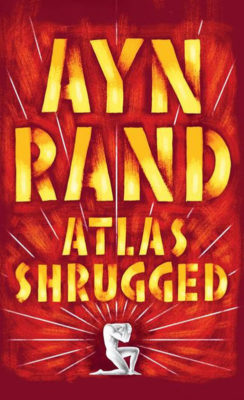

 Dr. David Kelley founded The Atlas Society in 1990 and served as Executive Director through 2012, before serving as the Chief Intellectual Officer, where he was responsible for overseeing all the content produced by the organization: articles, videos, talks at conferences, etc.
Dr. David Kelley founded The Atlas Society in 1990 and served as Executive Director through 2012, before serving as the Chief Intellectual Officer, where he was responsible for overseeing all the content produced by the organization: articles, videos, talks at conferences, etc.













